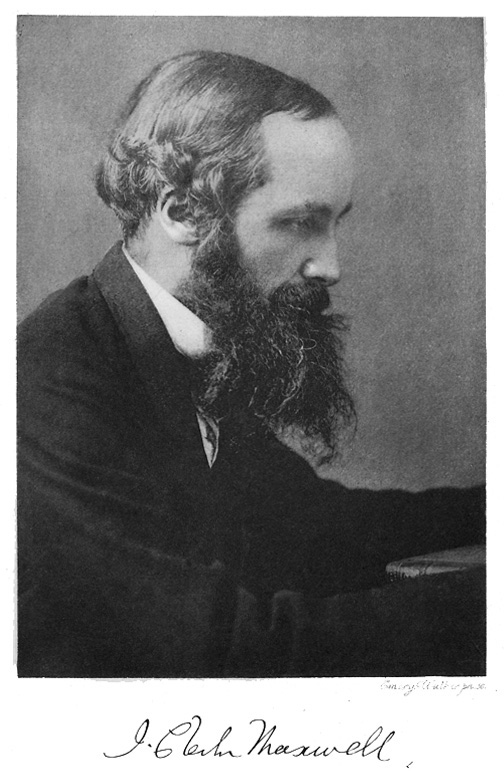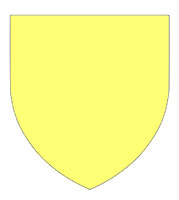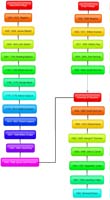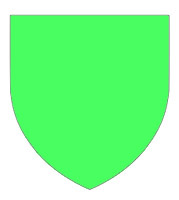| Professors of Natural Philosophy at the Universities of Aberdeen |
James Clerk Maxwell FRS FRSE 13th Jun 1831 - 5th Nov 1879The vacancy at Marischal College that Maxwell filled in 1856 was one of the chance events of life and death over which we have no control. It was a chance, though, that Maxwell appreciated. Near the end of his first session he wrote to his former mentor in Edinburgh, Professor Forbes, "I am quite sure that I am better here than at Cambridge. I have had no trouble whatever in any matter either in College or out of College". A year later to a friend he commented: "This College work is what I and my father looked forward to for long and I find we were both quite right. And with respect to this particular College I think we have more discipline and more liberty and therefore more power of useful work than anywhere else". Clearly the words of a man happy in his job. Maxwell’s name is still held in the highest esteem in Physics for his insight and discoveries but at Marischal College he threw himself into his teaching. He had the students doing their own experiments; he initiated and ran a voluntary higher class for 4th year students that was well suported and he undertook teaching workers in the evening classes of the Aberdeen School of Art. During the session he had classes for 15 hours a week, seen not as a chore but as a challenge. He said that he particularly enjoyed being 'Regent' in that the third year students were seen as 'his' students, even though they had a minor class in mathematics. In later life Maxwell authored three undergraduate textbooks, a range of articles for the Encyclopaedia Britannica and other material that was largely educational. The love of teaching others what he himself found fascinating in nature was clearly part of Maxwell’s life. I have written at some length e.g. John S. Reid, "James Clerk Maxwell's Scottish Chair", Phil. Trans. Roy. Soc. A 366, pp 1661-1684, (2008); John S. Reid, "Maxwell at Aberdeen", pp 17 - 42, 304 - 310 in Raymond Flood, Mark McCartney and Andrew Whitaker (eds), James Clerk Maxwell: Perspectives on his Life and Work (Oxford University Press, 2014). about Maxwell in Aberdeen. I’ll borrow the brief summary of his researches during his time here that was given at the unveiling of a blue plaque to him at Marischal College. "Maxwell single-handedly laid the foundations of today’s quantitative colour science, substantially at Marischal College though not wholly so; he laid the foundation stone for statistical physics while at Marischal College and indeed was best known in his day as the leading ‘molecular scientist’ of his age. He submitted a book-length treatise while at Marischal College demonstrating on theoretical grounds why Saturn’s rings can’t be solid or liquid but must be made up of myriads of tiny objects almost independently orbiting". He had other achievements too while at Marischal College, in optics and with Maxwell’s Dynamical Top. It is well-known that he married Katherine Dewar while at Aberdeen, one of the Marischal College Principal's two surviving daughters. The Maxwells were a devoted couple who lead a quiet social life and had no children. For almost half of each year, Maxwell retired from Aberdeen to the estate he had inherited in SW Scotland. He had spent formative years of his childhood there and throughout his life it was always 'home'. Because of the 'fusion', Maxwell was the last Professor of Natural Philosophy at Marischal College. It is also well-known that the Royal Commission that oversaw the merger of the two Universities in Aberdeen declared that the surviving Professor of Natural Philosophy in 1860 should be David Thomson, Maxwell's King's College counterpart. The Royal Commission evaporated after making their report but their decision harmed the reputation of the University in the eyes of posterity and of course deprived it of Maxwell's direct influence. By July 1860 Maxwell had secured the ProfessorshipFor an account of Maxwell's life and times at King's College, London, see John S. Reid, "Maxwell at King's College, London", pp 43 - 66, 310-313 in Raymond Flood, Mark McCartney and Andrew Whitaker (eds), James Clerk Maxwell: Perspectives on his Life and Work (Oxford University Press, 2014). of Natural Philosophy at King's College, London. For more on Maxwell, see the web-page James Clerk Maxwell at Aberdeen. |

James Clerk Maxwell from the fronispiece of his textbook 'Matter and Motion', an image taken some years after his Marischal College Chair |
|
Page by John S. Reid Dec. 2017 |


